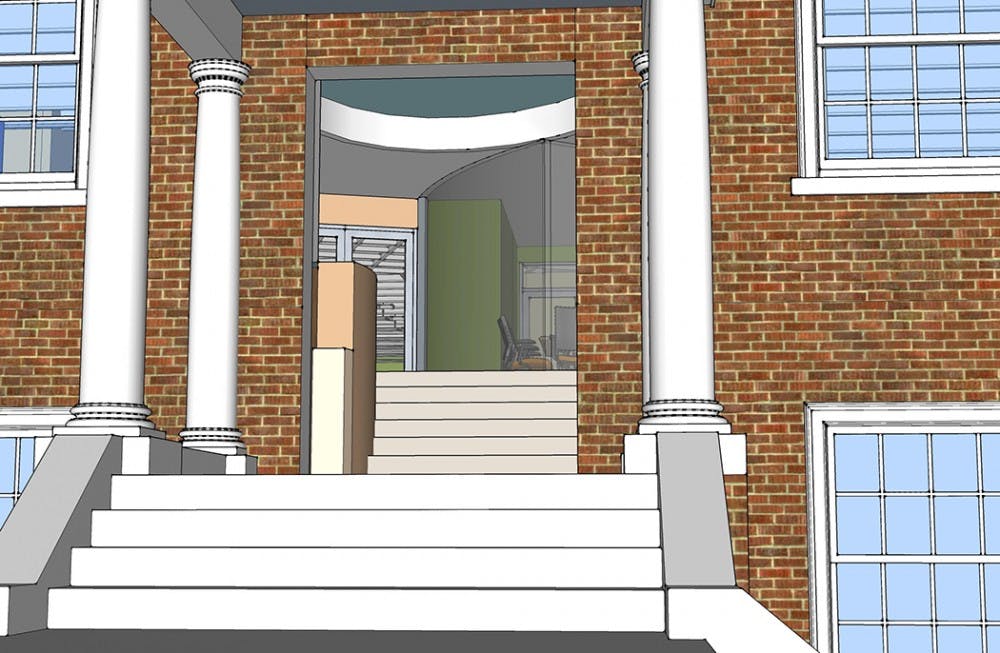University Engineering enters into the world of cyber-physical systems (CPS) research with the construction of the Link Lab, an interdisciplinary space designed to facilitate studies relating to the implementation of “smart” systems into daily life.
CPS can take the form of anything from a smart home to a water treatment system.
“Autonomous vehicles is one classic example of a cyber-physical system,” Kamin Whitehouse, director of the Link Lab, said. “Cars drive themselves — they sense the world, process it and they decide what to do next.”
The University’s interest in expanding its research into CPS began with Jack Stankovic, said Pam Norris, executive associate dean for research at the Engineering school. Stankovic, the University’s BP America professor based in the Department of Computer Science, sits on the steering committee of the Link Lab.
Whitehouse, a Commonwealth associate professor in the Department of Computer Science, and other professors expressed sufficient interest in the school’s CPS opportunities to convince the Engineering school to make the Link lab their primary investment for the year.
“It was very much organically driven,” Norris said. “The nine department chairs across the School of Engineering, working together, decided this was the one area they would recommend for significant investment the next year.”
The construction of the lab’s physical space should be completed by the end of the calendar year.
“We are designing a new space, and it will house over 150 researchers in this area,” Whitehouse said. “It’s the first space of its kind in the Engineering school, and we think it’s the future of engineering.”
Even without a finished lab space, Whitehouse and his interdisciplinary team of researchers are currently working on a number of creative CPS projects — three of which have won awards from the National Science Foundation.
The Link lab has three main focus areas of research — wireless health, smart cities and autonomous robots, Whitehouse said.
Wireless health systems use wireless technology to improve health outcomes. They can take the form of devices like body sensor networks or an artificial pancreas.
Jon Goodall, assistant director of the lab, is currently working on a smart city project in which he uses high-resolution sensing and intelligent algorithms to predict where city flooding will occur and what affect different mitigation efforts might have on the resultant damage.
The lab’s autonomous robotics research includes work on intelligent transportation systems, such as driverless cars. They have an F1/10 racing team, which designs an autonomous racing car at 1/10 actual size — a scale on which it can be safer to experiment with self-driving technology.
Currently, the lab thrives at the intersection of five disciplines — computer science, electrical engineering, systems engineering, mechanical engineering and civil engineering.
In the future, Norris said she sees opportunities for even greater cross-disciplinary cooperation.
“It’s a strength of U.Va. to be able to pull in ethics and leadership and policy into these big initiatives, such as this, and this area’s right for it,” she said.
For example, autonomous robotics lends itself to an interdisciplinary approach beyond engineering disciplines due to the ethical implications of smart car use and design.
“How do you control, for example, thousands of autonomous vehicles at the same time?” Whitehouse said. “How do you make sure that they won’t crash and cause either damage to the equipment or damage to people?”
Both Norris and Whitehouse aim to make the University a world-renowned source of CPS research.
“If we’re really successful, when people think of CPS, they think of U.Va.,” Norris said. “When they think of the leader and where they want to go to be in that intellectual environment, we’re at the top of their list.”







